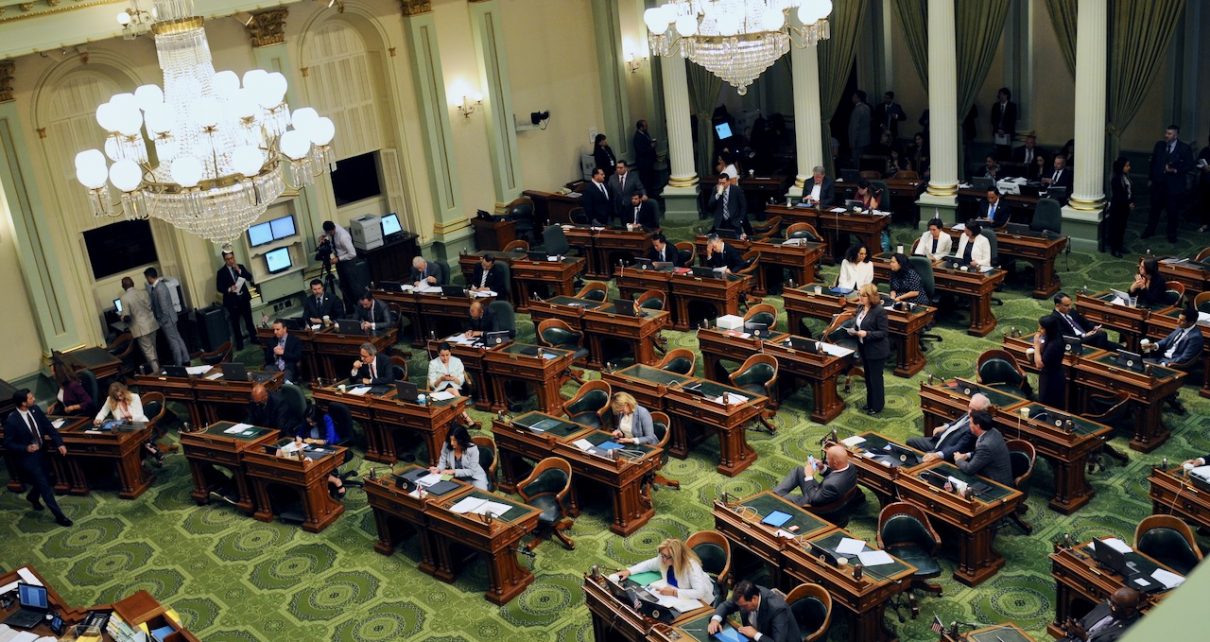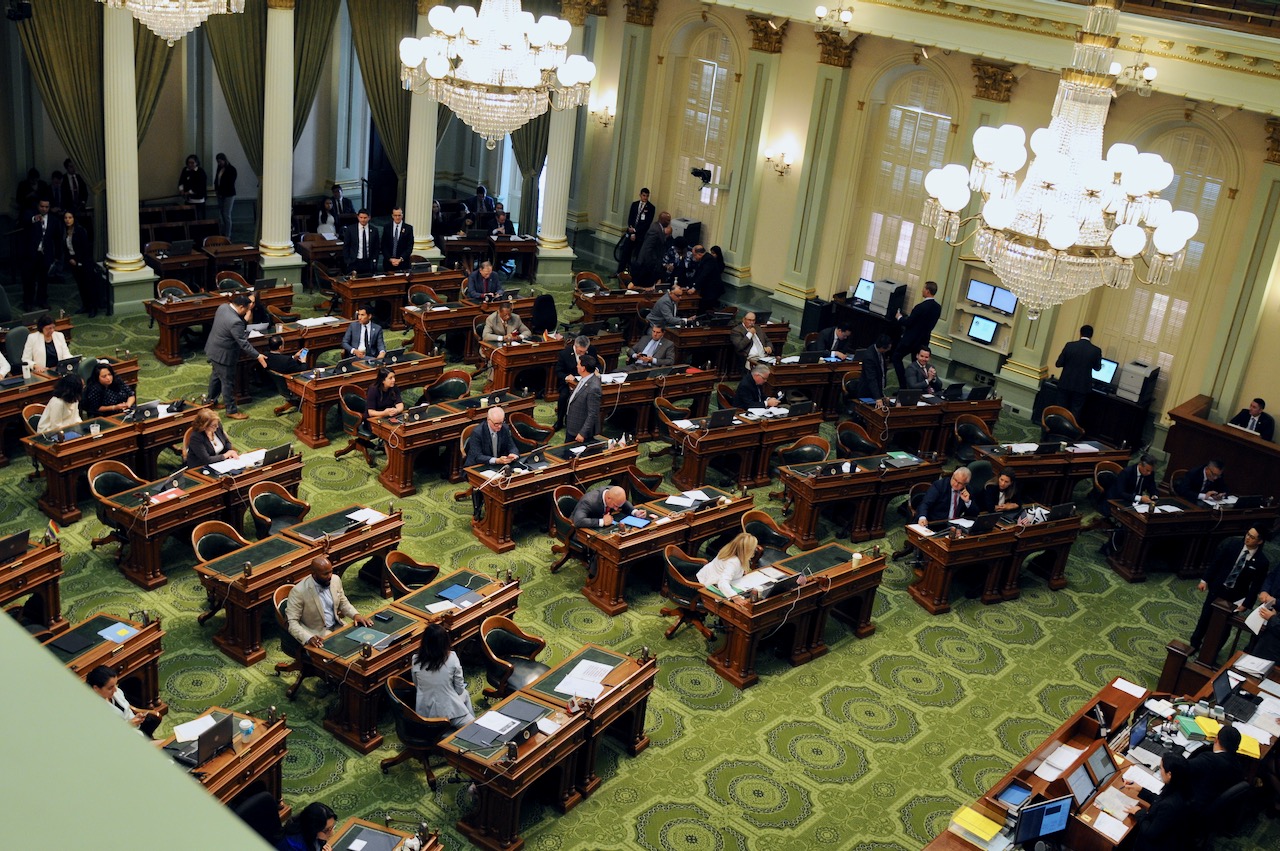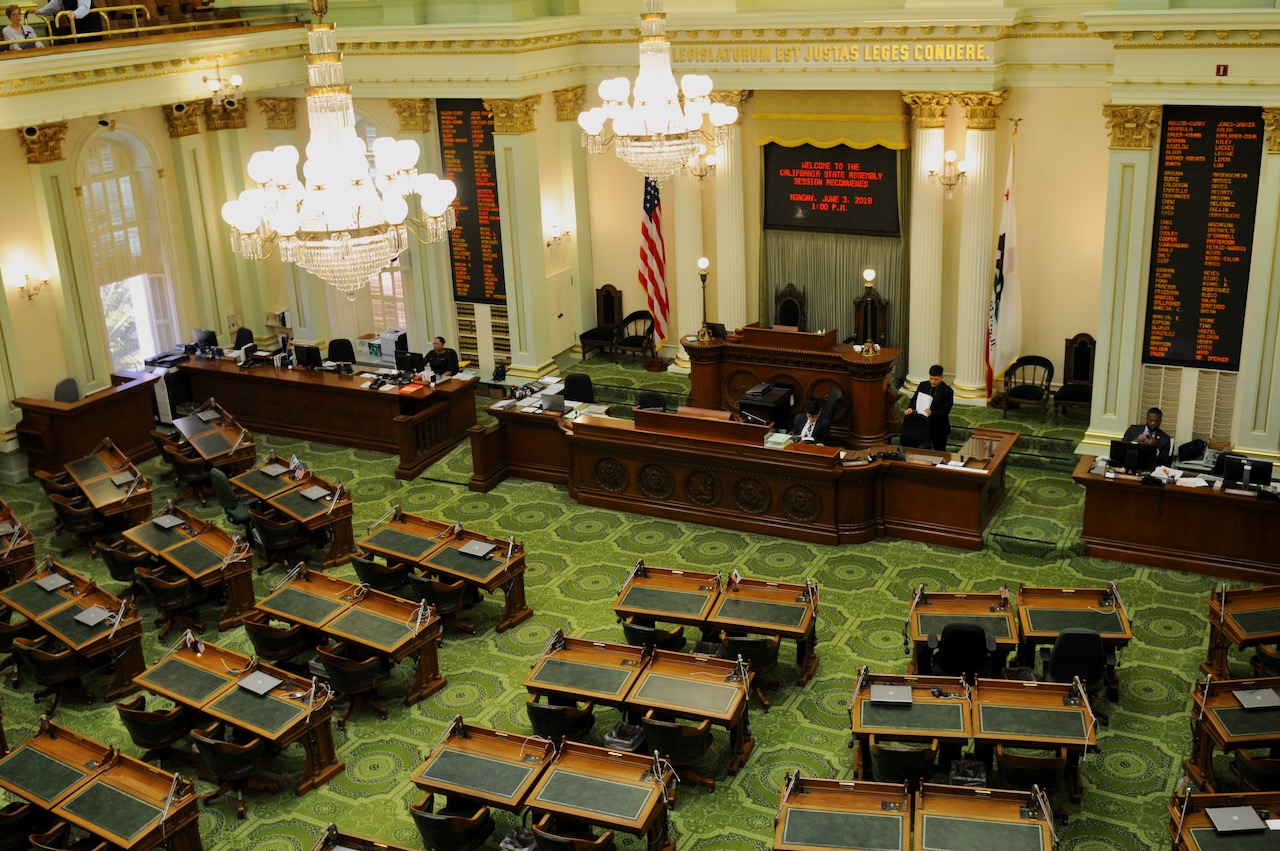
California State Assembly Chamber. (Photo: Kevin Sanders for California Globe)
Urgency Clause Statutes in California Legislation
What determines urgency?
By Chris Micheli, November 27, 2019 6:08 am
Bills signed into law by the Governor that contain an urgency clause become urgency statutes or urgency clause statutes. California Constitution Article IV, Section 8 deals with urgency statutes. Section 8(c)(3) provides that urgency clause bills go into effect immediately upon their enactment. That is the major distinction between a regular bill and an urgency clause bill. The regular bill takes effect on the following January 1 (or later) while the urgency clause bill takes effect immediately.
What determines an urgency? Section 8(d) specifies that “urgency statutes are those necessary for immediate preservation of the public peace, health, or safety.” Because of this definition, an urgency measure must contain an urgency clause which specifies why the bill qualifies for this special status based upon this definition.
In this regard, Section 8(d) requires “a statement of facts constituting the necessity shall be set forth in one section of the bill. In each house the section and the bill shall be passed separately, each by rollcall vote entered in the journal, two thirds of the membership concurring.” Not only is the urgency clause required with the relevant explanation, but also the Legislature must vote on the urgency clause itself.
Finally, Section 8(d) provides that “an urgency statute may not create or abolish any office or change the salary, term, or duties of any office, or grant any franchise or special privilege, or create any vested right or interest.” As a result, these types of bills are simply not allowed to contain an urgency clause and may not be enacted as an urgency statute.
Due to these constitutional provisions, the two major distinctions with an urgency clause statute, as opposed to a regular statute, are the vote threshold requirement and the effective date. Instead of the usual simple majority vote required of most bills to pass, an urgency clause statute requires a super-majority vote on both floors of the California Legislature.
In addition, urgency statutes once enacted are effective the day they are chaptered, rather than January 1 of the following year (absent a statutory operative date otherwise specified). There is also a floor requirement that there be two separate votes by legislators – one on the urgency clause itself and one on the bill in chief.
- A Historic Look at Bill Introductions in the California Legislature - February 21, 2026
- Construction of Eminent Domain Law - February 21, 2026
- Deposition of Expert Witnesses - February 20, 2026





5 thoughts on “Urgency Clause Statutes in California Legislation”